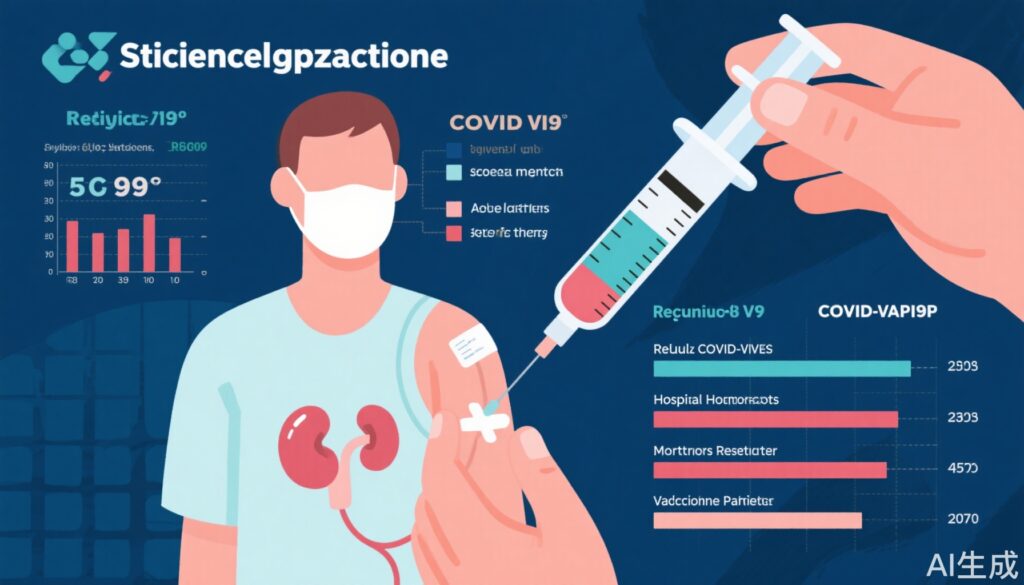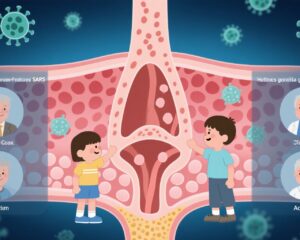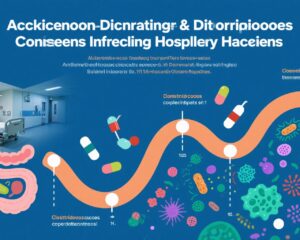Highlights
- Kidney-transplant recipients exhibit a 50% vaccine effectiveness (VE) against COVID-19 hospitalization after 2 or 3 doses.
- Administration of more than three vaccine doses reduces COVID-19 mortality by 62% in kidney-transplant recipients.
- Dialysis patients also benefit from vaccination with reduced hospitalization, though mortality benefit after booster doses is not observed.
- Real-world nationwide cohort data from Finland strongly supports booster vaccination in kidney-replacement therapy patients to mitigate COVID-19 morbidity and mortality.
Background
Patients undergoing long-term kidney replacement therapy (KRT), including dialysis and kidney transplantation, represent a highly vulnerable population with elevated risk for severe COVID-19 outcomes due to immunosuppression and comorbidities. Despite vaccination rollout worldwide, evidence quantifying vaccine effectiveness in these populations has been limited and heterogeneous. Understanding the impact of COVID-19 vaccination specifically among kidney-transplant recipients is crucial for optimizing clinical guidelines and vaccination strategies.
Key Content
Study Design and Population
The referenced nationwide cohort study utilized the Finnish Registry for Kidney Diseases, encompassing 5,755 KRT patients (2,547 dialysis, 3,208 kidney-transplant) matched 1:10 with 57,253 controls from the general population. The timeframe spanned from January 1, 2020, to December 31, 2022, capturing data before and after availability of COVID-19 vaccines.
Infection and Outcomes
SARS-CoV-2 infections occurred in 30.8% of dialysis patients, 29.0% of kidney-transplant recipients, and 18.7% of controls, reflecting higher susceptibility in KRT patients. The primary outcomes studied were hospitalization and death attributed to COVID-19.
Vaccine Effectiveness Against Hospitalization
Among patients with two or three vaccine doses, VE against COVID-19 hospitalization was:
- 47% (95% CI: 12% to 68%) in dialysis patients
- 50% (95% CI: 26% to 66%) in kidney-transplant recipients
- 76% (95% CI: 69% to 82%) in matched controls
This demonstrates that while vaccine protection is somewhat attenuated in KRT patients compared to the general population, it remains clinically meaningful.
Mortality Reduction with Booster Doses
Critically, for kidney-transplant recipients only, receiving more than three vaccine doses was associated with a 62% reduction in COVID-19 mortality (95% CI: 14% to 83%). This mortality benefit was not observed in dialysis patients, suggesting differential immunologic responses or comorbidity patterns between these subgroups.
Comparative Effectiveness and Implications
The data highlight that despite immunosuppression in kidney-transplant recipients, booster doses confer significant survival benefits, affirming the importance of maintaining updated vaccination regimens. The reduced but substantial VE also underscores the need for adjunct preventive strategies such as monoclonal antibodies and continued protective measures.
Expert Commentary
This robust population-based study aligns with and extends prior reports indicating reduced immunogenicity to vaccines in KRT patients but persistent clinical protection. Kidney-transplant recipients, due to chronic immunosuppressive therapy, often mount weaker immune responses to vaccination; however, this study demonstrates that booster dosing can effectively mitigate severe COVID-19 outcomes and mortality.
Guidelines from organizations such as the American Society of Transplantation and KDIGO have recommended prioritized vaccination and boosters in transplant recipients. The Finnish nationwide cohort further concretely quantifies the benefit and supports ongoing booster campaigns. Nonetheless, challenges remain concerning optimal dosing intervals and vaccine platforms tailored for immunocompromised patients.
Mechanistically, the heightened benefit of more than three doses in transplant recipients likely involves augmented humoral and cellular immunity overcoming initial vaccine hyporesponsiveness. Dialysis patients, while also immune compromised, may have different comorbidity profiles influencing mortality independent of vaccination status.
Limitations include observational design, potential residual confounding despite matching, and lack of detailed immunologic correlates. Furthermore, variants of concern and evolving vaccine formulations during the study period introduce heterogeneity.
Conclusion
The study by Helanne et al. offers compelling real-world evidence that COVID-19 vaccination, particularly with booster doses exceeding three, substantially reduces hospitalization and mortality in kidney-transplant recipients. These findings reinforce the clinical imperative to prioritize and maintain comprehensive vaccination schedules in this high-risk patient population to improve outcomes during the ongoing COVID-19 pandemic.
Future research should focus on longitudinal immune monitoring, optimized vaccine dosing strategies, and integration of adjunct prophylactic therapies tailored for immunosuppressed patients. Continued surveillance of vaccine effectiveness against emerging SARS-CoV-2 variants remains essential.
References
- Helanne H, Kortela E, Helve J, Järvinen A, Forsblom E, Rimhanen-Finne R, Karonen T, Ollgren J, Helanterä I, Finne P. Effectiveness of COVID-19 vaccination among dialysis and kidney transplant patients compared to matched controls – a nationwide cohort study. Clin Microbiol Infect. 2025 Aug 6:S1198-743X(25)00370-2. doi:10.1016/j.cmi.2025.07.029 IF: 8.5 Q1 . PMID: 40780554 IF: 8.5 Q1 .


